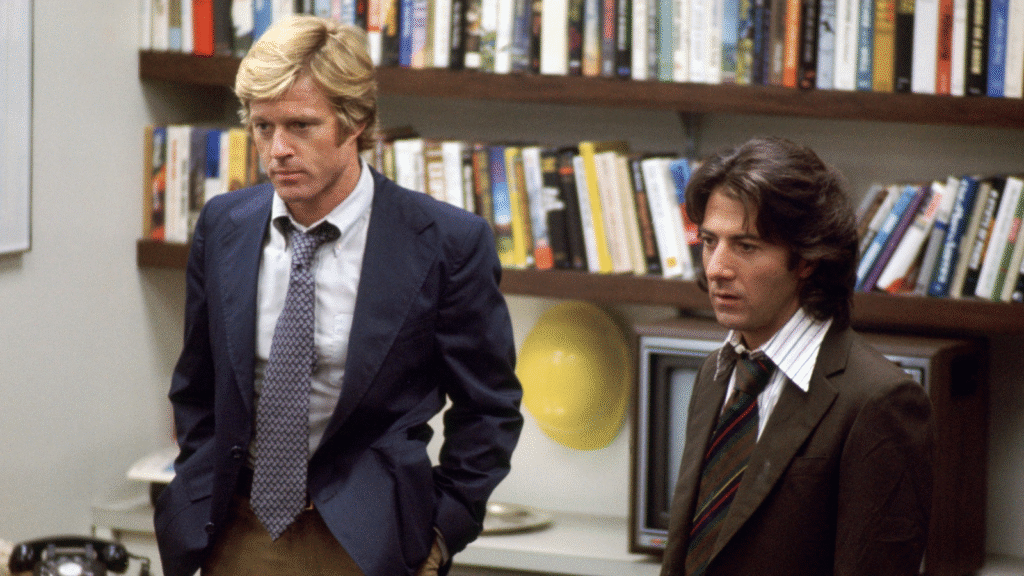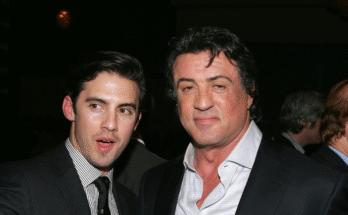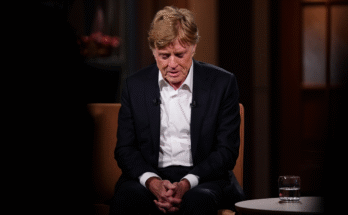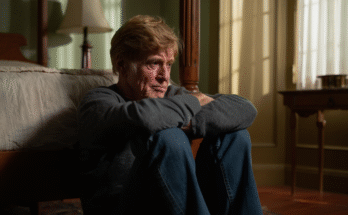Robert Redford has finally opened up about the dark side of his involvement in one of Hollywood’s most politically charged films, All the President’s Men. The legendary actor revealed that after the movie’s release, he received numerous threats from individuals angered by the film’s portrayal of the Watergate scandal — a revelation that shocked even those close to him.

In a recent retrospective interview, Redford admitted that the 1976 political thriller, which exposed the corruption within the Nixon administration, made him both a cultural hero and a target. “We knew the story had power,” he said, “but I didn’t expect the level of hostility that followed. It got very personal.”
The film, in which Redford played journalist Bob Woodward alongside Dustin Hoffman as Carl Bernstein, chronicled The Washington Post’s investigation that ultimately led to President Richard Nixon’s resignation. Redford not only starred in the film but also produced it, ensuring historical accuracy and journalistic integrity — decisions that drew praise from critics and anger from certain political circles.

According to Redford, the backlash was immediate. He recalled receiving anonymous letters and phone calls warning him to “watch his back” and “stop stirring trouble.” Some threats, he said, seemed to come from people who viewed the movie as an attack on patriotism. “It was frightening at times,” he confessed. “You realize how dangerous truth can be when people feel exposed by it.”
The actor also revealed that certain industry figures advised him to distance himself from political films. “They told me to stick to romance or adventure,” Redford said. “But how could I ignore a story that defined a generation’s distrust in power?” His choice to stand by the film’s message, he added, was driven by conviction rather than career strategy.
Despite the risks, All the President’s Men became an instant classic and one of the most influential political films ever made. Its meticulous attention to detail and moral clarity set a new standard for journalism-based cinema. “It wasn’t just about Nixon,” Redford explained. “It was about accountability — something that still matters today.”

Redford’s courage during that turbulent period strengthened his reputation as both an artist and an activist. He went on to establish the Sundance Institute and champion independent filmmaking, using his influence to promote truth-telling voices in cinema. “If you believe in the truth,” he said, “you can’t be afraid to face the backlash that comes with it.”
The actor admitted, however, that the emotional toll of that time stayed with him for years. “I didn’t talk about the threats because I didn’t want to give them power,” he reflected. “But now, looking back, I see how those moments shaped my understanding of responsibility — not just as an actor, but as a citizen.”
Redford also expressed gratitude for the journalists whose bravery inspired the film. “Woodward and Bernstein risked everything to reveal the truth. Compared to that, what I faced was nothing,” he said. He noted that the experience gave him a lasting respect for the press and its role in protecting democracy.

Nearly five decades later, Redford still sees the relevance of All the President’s Men. “The themes haven’t changed,” he warned. “Power still tries to silence truth, and fear still keeps people quiet. The real challenge is to keep speaking, no matter the cost.”
Today, at 88, Robert Redford’s reflections serve as a reminder that courage in storytelling often comes with a price. His revelation about the threats he faced only deepens the respect for an artist who used his platform not just to entertain, but to challenge, inform, and inspire — even when the truth was the most dangerous role of all.



